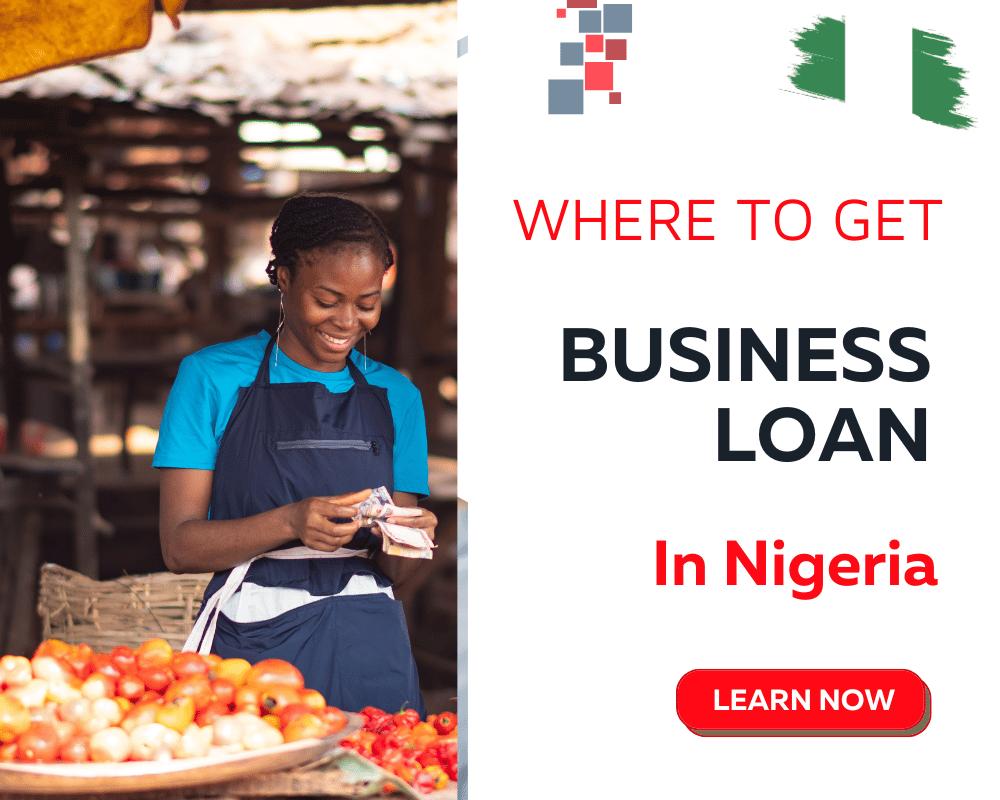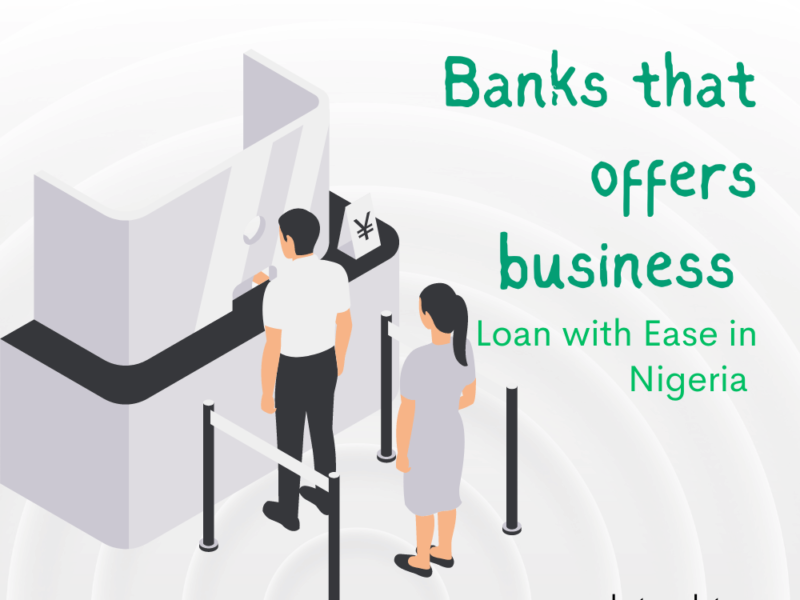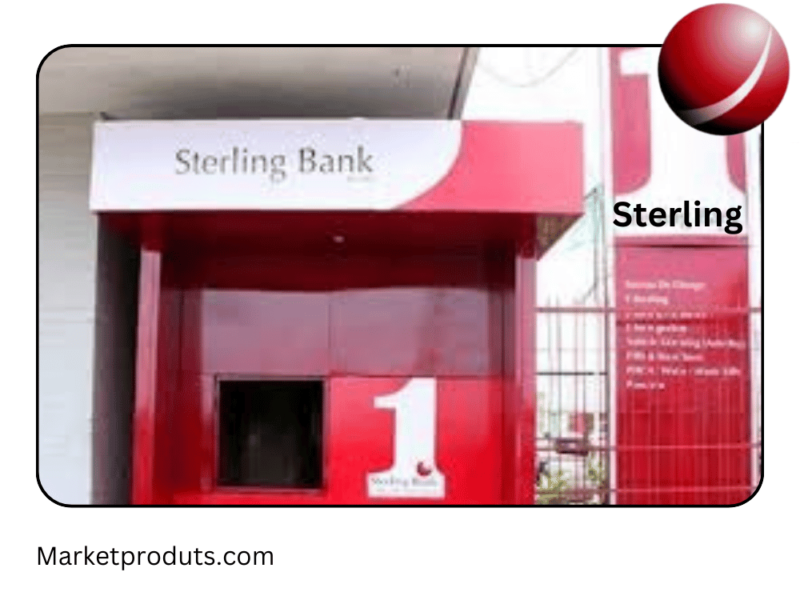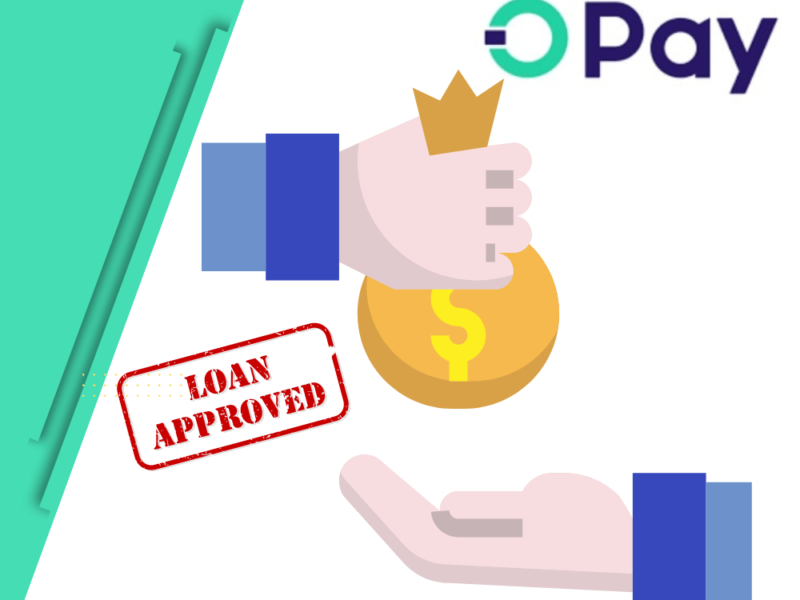Nigeria is Africa’s largest economy, filled with entrepreneurial talents and business opportunities. For many entrepreneurs and business owners in Nigeria, accessing adequate financing is very essential for growth, expansion, and sustainability. The most common ways to secure funding for business is through business loans. However, understanding the landscape of business loans in Nigeria can be overwhelming, given the variety of financial institutions, loan types, and application processes available. This article provides a guide on where to get business loans in Nigeria, detailing the options available, eligibility criteria, and application processes to help you make good decisions.
Read more: 5 Business loans in Nigeria
Types of Business Loans Available
- Short-Term Loans: These loans are typically used for immediate business needs like inventory purchase or working capital and are repaid within a year.
- Long-Term Loans: Ideal for substantial capital investments such as equipment purchase or expansion, these loans have longer repayment periods, often exceeding five years.
- Asset-Based Loans: Secured loans where the borrower pledges assets (machinery, real estate) as collateral.
- Revolving Loans: These loans allow businesses to borrow, repay, and borrow again up to a set credit limit, making them suitable for fluctuating cash flow needs.
Top Financial Institutions Providing Business Loans in Nigeria
Several institutions in Nigeria provide business loans with varying terms and conditions. Here are some of the major notable options:
1. Commercial Banks

Commercial banks are the most popular and widely known sources for business loans in Nigeria. They offer various loan products, including short-term, medium-term, and long-term loans tailored to meet different business needs. Some of the prominent commercial banks in Nigeria providing business loans are:
- Access Bank: Offers several business loan products, such as the SME Loan, W Power Loan for women entrepreneurs, and the Overdraft Facility for working capital.
- Guaranty Trust Bank (GTBank): Provides the Quick Credit for Small and Medium Enterprises (SMEs) and Asset Finance Loan for business expansion.
- First Bank of Nigeria: Offers SME loans, the LIFT Above Poverty Organization (LAPO) Microfinance Bank Loan, and FirstEdu Loan for educational institutions.
Eligibility Criteria: To qualify for a business loan from a commercial bank, businesses typically need to provide proof of business registration, financial statements, a detailed business plan, collateral, and a good credit history.
Application Process: Applications can be made online or in person at the bank. The bank will conduct a thorough assessment of the business’s financial health, repayment capacity, and collateral before approving the loan.
2. Microfinance Banks
Microfinance banks (MFBs) in Nigeria cater primarily to small businesses and entrepreneurs who may not qualify for loans from commercial banks. These banks provide smaller loans with more flexible terms and often require less stringent collateral. Some notable microfinance banks in Nigeria include:
- LAPO Microfinance Bank: Known for providing loans to small businesses and individuals, LAPO offers both group and individual lending schemes.
- AB Microfinance Bank: Provides SME loans and asset finance to small businesses with less cumbersome documentation requirements.
- ACCION Microfinance Bank: Offers a wide range of loans, including SME loans, group loans, and individual business loans.
Eligibility Criteria: Microfinance banks generally require proof of business registration, a simple business plan, personal guarantors, and sometimes minimal collateral.
Application Process: The process is usually simpler and faster compared to commercial banks. Applications can be made directly at the bank, and approvals typically depend on the business’s creditworthiness and repayment capacity.
3. Development Financial Institutions (DFIs)
Development Finance Institutions (DFIs) are specialized institutions that provide credit facilities to businesses in specific sectors, such as agriculture, manufacturing, and real estate, to promote economic development. In Nigeria, DFIs such as the Bank of Industry (BOI) and the Nigerian Export-Import Bank (NEXIM) play significant roles in providing business loans.
- Bank of Industry (BOI): Offers various loan schemes for SMEs and large enterprises, including the SME Matching Fund, the Cottage Agro Processing (CAP) Fund, and the N-Power Fund for young entrepreneurs.
- Nigerian Export-Import Bank (NEXIM): Provides export financing and credit guarantees for businesses engaged in non-oil export activities.
Eligibility Criteria: To qualify for loans from DFIs, businesses must operate in specific sectors, meet the institution’s guidelines, and provide detailed business plans, feasibility studies, and collateral.
Application Process: Applications are typically made online or in person, with a comprehensive review of the business plan, financial projections, and impact potential. Approval times vary based on the loan type and sector focus.
Read more: How To borrow money from palmpay
4. Government Intervention Funds
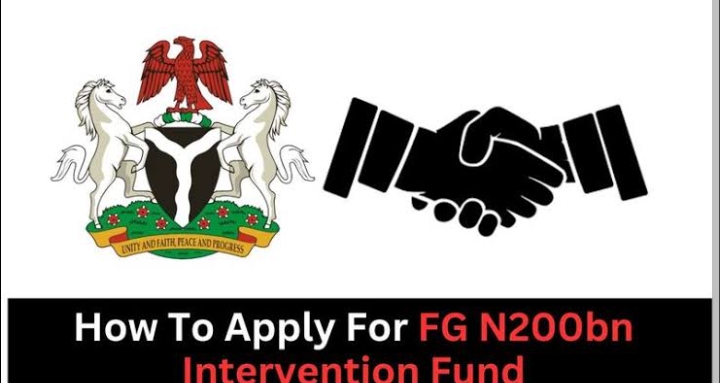
The Nigerian government, through the Central Bank of Nigeria (CBN), has established various intervention funds to support SMEs and encourage economic growth. These funds are often disbursed through commercial banks, microfinance banks, and DFIs. Some popular government intervention funds include:
- CBN NIRSAL Microfinance Bank Loan: Provides funding for small businesses under the Anchor Borrowers’ Program (ABP), the Agri-Business/Small and Medium Enterprise Investment Scheme (AGSMEIS), and the Targeted Credit Facility (TCF).
- CBN Creative Industry Financing Initiative (CIFI): Targets entrepreneurs in the creative industry, including fashion, film, music, and ICT sectors.
- CBN Agric Small and Medium Enterprise Scheme (AGSMEIS): Provides affordable loans to farmers and SMEs in agriculture and agro-processing.
Eligibility Criteria: Eligibility criteria vary depending on the specific fund but generally include proof of business registration, a business plan, and participation in the required training programs.
Application Process: Applications are made through participating financial institutions or directly through CBN’s designated platforms, and disbursement follows a thorough review process.
5. Non-Governmental Organizations (NGOs) and Foundations
Several NGOs and foundations in Nigeria offer grants and low-interest loans to small businesses and startups, especially those led by women and youth. Some notable examples include:
- Tony Elumelu Foundation (TEF) Entrepreneurship Programme: Provides training, mentorship, and non-refundable seed capital to African entrepreneurs.
- SME Empowerment Hub: Offers low-interest loans, grants, and technical support to startups and SMEs.
- She Leads Africa Accelerator Program: Focuses on providing women entrepreneurs with access to funding, mentorship, and growth opportunities.
Eligibility Criteria: The criteria vary widely, often focusing on specific sectors, demographic groups, or business models. Businesses typically need to submit detailed proposals and demonstrate potential for growth and social impact.
Application Process: Applications are made through the organization’s website, with a competitive selection process involving interviews and assessments.
6. Online Lending Platforms
In recent years, digital lending platforms have emerged as a viable source of business loans in Nigeria. These platforms provide quick access to credit, often without the need for collateral. Some of the popular online lending platforms include:
- Carbon: Offers short term loans with flexible repayment options to SMEs and individuals.
- Branch: Provides quick, collateral-free loans to entrepreneurs through a mobile app.
- Kiakia: A peer-to-peer lending platform that connects lenders with borrowers, offering competitive interest rates.
Eligibility Criteria: Online platforms typically require minimal documentation, such as a valid ID, proof of income, and a bank statement.
Application Process: Applications are made via mobile apps or websites, and loans are approved based on credit scores and digital footprints.
Considerations When Choosing a Lender

Selecting the right lender for your business is crucial to ensuring your venture’s sustainability and growth. These are key factors to consider:
1. Interest Rates
Different lenders offer varying interest rates based on loan type, duration, and borrower profile. Comparing interest rates across multiple institutions will help you find the most affordable option.
2. Repayment Terms
Consider the repayment period and flexibility. Some lenders offer more extended repayment periods, while others provide grace periods before repayments begin. Choose a lender whose repayment terms align with your business cash flow.
3. Collateral Requirements
Some loans require collateral, such as real estate or machinery, while others do not. Assess your ability to provide collateral if needed and choose a lender whose collateral requirements suit your situation.
4. Eligibility Criteria
Each lender has different eligibility criteria, including business age, turnover, and credit history. Ensure that you meet these criteria before applying to avoid wasting time.
5. Loan Amounts and Disbursement Speed
The loan amount you need and how quickly you need it will influence your choice of lender. Fintech companies offer quick disbursement for smaller amounts, while banks and DFIs may provide larger sums but with longer processing times.
Conclusion
Accessing business loans in Nigeria requires understanding the different financial institutions, loan types, and their respective eligibility criteria and application processes. From traditional commercial banks and microfinance institutions to government intervention funds and online lending platforms, businesses have a range of options to explore. By carefully assessing these options and aligning them with your business’s specific needs and goals, you can secure the financing necessary to propel your business forward in Nigeria’s dynamic economic landscape.
